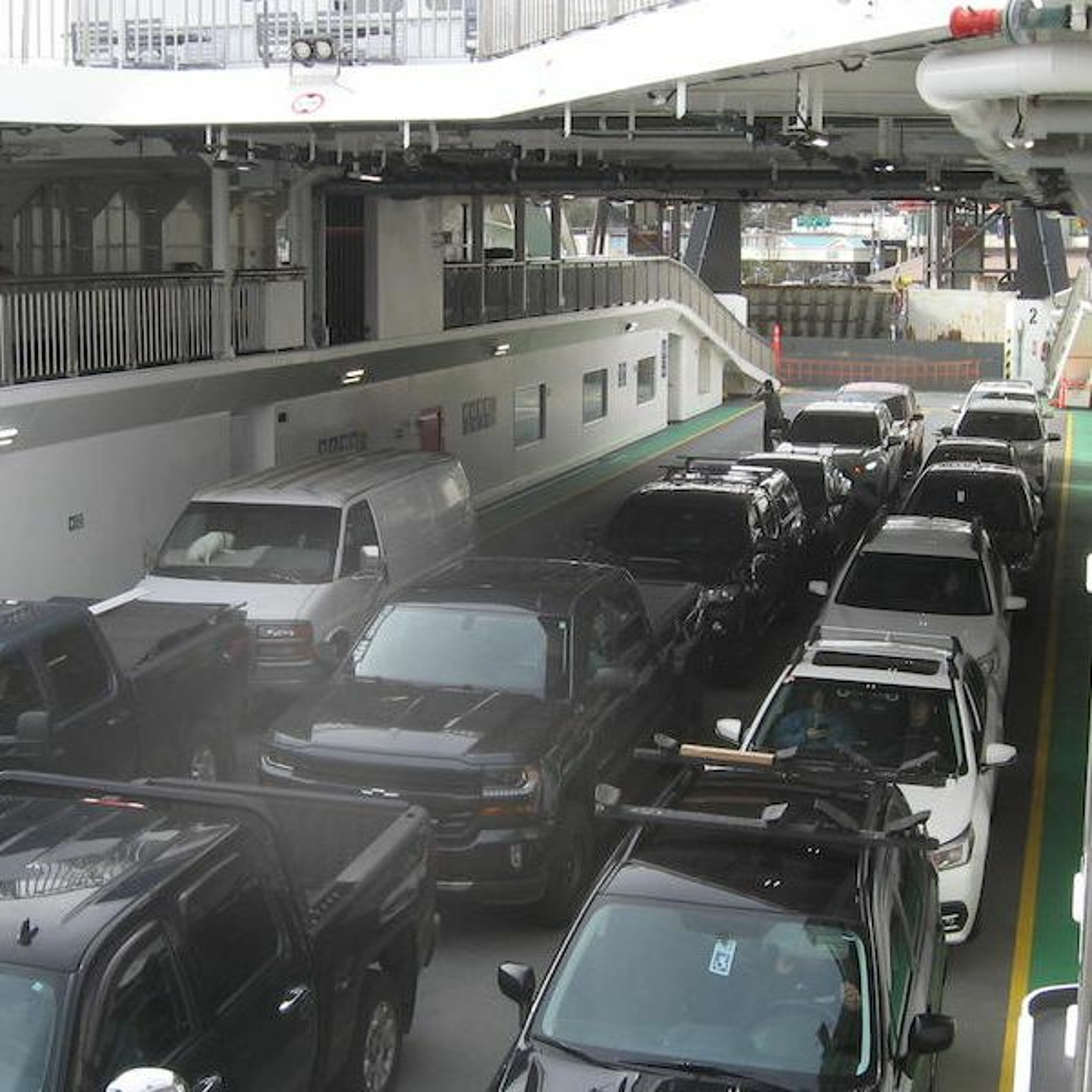The carbon footprint of longer distance travel to and from Cortes
- Author
- roy.hales9.gmail.com
- Published
- Thu 05 Oct 2023
- Episode Link
- https://soundcloud.com/the-ecoreport/the-carbon-footprint-of-longer-distance-travel-to-and-from-cortes
Roy L Hales/ Cortes Currents - The Friends of Cortes Island (FOCI) just released a report about the carbon footprint made by long distance trips to and from Cortes Island.
Many of their findings are to be expected. Taking a plane off the island creates a great deal more emissions than driving a car, and people who carpool or take a bus are responsible for only a fraction of that vehicle’s pollution.
One of the biggest contributors to our local footprint is the Cortes-Quadra ferry, which creates approximately 1 kg of carbon emissions for every walk-on and 12 kg for every car.
This is where the effects of carrying more than one person is really evident, because the vehicle emissions are divided between the number of occupants. While a car makes 12 kg of CO2, if there are four people in that vehicle their personal share of these emissions are only 3 kg each.
Of course, you need to include the emissions from three ferries when calculating the impact of a one way trip to Vancouver.
“If you take up a space on the ferry with a car, then you get a certain share of the ferry's greenhouse gas emissions. It's actually quite a lot. Roughly half of a car’s emissions if you're driving to Vancouver, which surprised me a little bit. It helps to make decisions about how much effort to put into leaving the car on Cortes, finding another way to get across Quadra and catching a ride with somebody else or taking the bus,” explained Max Thaysen, President of FOCI
He added that this is not the typical carbon footprint study, which tends to shift the blame for carbon emissions away from corporations and governments and onto individuals.
MT: “A lot of people get turned away from climate change and climate action because it doesn't feel very good to be the recipient of guilt or shame for just trying to live our lives and do the best we can.”
“I'm really sensitive to that dynamic. We tried to make it explicit in the report that this is for information purposes. This isn't to make anybody feel bad about what they decide.”
“This is to support people who would like to know what choices they can make to reduce their personal impact.”
“With that comes a strong message that the average or certainly lower income Canadian impact on climate change is not the game changer. It is a bit of a distraction at times.”
“I still want to know about it, and I think other people do too, but we shouldn't let it hold us back from focusing on some more important things, which includes collective action and creating the political will to make systemic changes.”
“It can be supportive and helpful to reduce our personal carbon emissions because it makes us feel more aligned when we make demands of the government. We can stand in a healthier place when we've picked off the low hanging fruit of our personal contributions to this problem, but we shouldn't let a few hundred kilograms of carbon one way or the other hold us back from joining together to save our planet, save ourselves, save people who are least responsible and most affected.”
“The flip side of that is the unsurprising revelation from this study that if you're a person who has a lot of financial resources and you're using those resources to do a lot of flying and a lot of traveling in some of the least efficient ways, then you're having an outsized contribution to this problem. This is an opportunity to think about that a little bit.”
